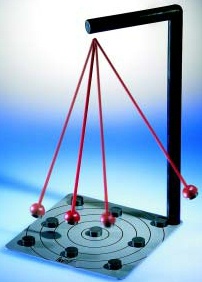The essay cited at (http://www.tomdispatch.com/archive/175208/) channels my CGSC tactics instructor's latest book The Clausewitz Delusion in asking several pertinent questions:
1) Why abandon traditional American way of war in the 1980s for Clausewitz, when we soundly defeated the German armies based on his writings twice
2) Centers of gravity - highly educated generals are constantly quoted as "misjudging" the CoG. If it's such a great concept, why do smart people have such trouble finding it, and even when they do, it seems to not have the desired effect.
I recommend Mr. Melton's book for a thought provoking read - he covers a lot of ground, some better than others, but the nuances of his arguments are worthwhile. He isn't so much criticizing Clausewitz himself, more the U.S. Army's implementation of doctrine based on CvC.
I was considering writing a review on the blog, but since I am entangled with the author for another few months it wouldn't be fully unbiased.





 Reply With Quote
Reply With Quote
 "A Sherman can give you a very nice... edge."- Oddball,
"A Sherman can give you a very nice... edge."- Oddball, 











Bookmarks